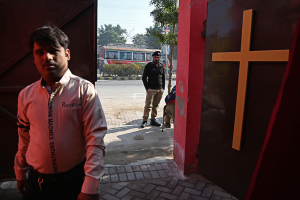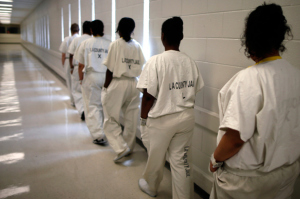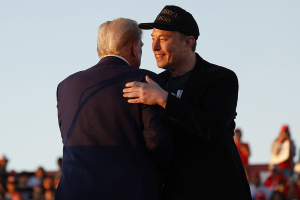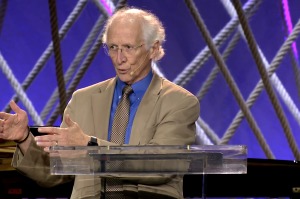Fighting Political Correctness In Our Armed Forces
A recent hearing on Capitol Hill dealt with an ongoing problem within our armed forces. As the hearing took place the day after the State of the Union Address, political analysis of the speech overshadowed the purpose of this crucial hearing.
Over the last year, there have been an increasing number of stories reporting the encroachment and infringement of the religious liberties of many in our armed forces. The problem has risen to such a level that the House Armed Service Subcommittee on Military Personnel held a hearing to investigate what is being done to protect the rights of conscience of all those who serve in the military.
Among the list of witnesses called to testify was Virginia Penrod - Deputy Assistant Secretary of Defense for Military Personnel Policy, as well as the Chiefs of Chaplains for the Army, Navy and Air Force. In what can only be described as willful ignorance, the witnesses denied discrimination against Christians in the Armed Forces.
But what they did say is that when service members share their faith, they must not offend those who don't want to hear it and avoid expressions that might demean people of other faiths. As legal standards go, that's as clear as mud. Must the 'hearer' say – "stop – I am offended?" What constitutes an 'offense?' And, what exactly is an expression that might demean those of other faiths? Something like Jesus saying that He is "the way, the Truth and the life" and that no one comes to God but through Him?
When several Congressional members of the Subcommittee raised specific examples of discrimination with the Deputy Secretary of Defense, she could only respond, "I'll have to take that one for the record," which is Washington speak for "I don't know the answer" or "I would rather not answer." Either way, pleading ignorance was stunning, to say the least.
For example: Christians have been labeled "extremists" during an Army Reserve Equal Opportunity training brief, Franklin Graham was uninvited to the Pentagon's National Day of Prayer service because of his position on Islam, Christian prayers have been banned at military funerals, Walter Reed Medical Center has banned Bibles and religious materials, the Air Force Academy had to apologize for promoting Operation Christmas Child, an Air Force base in California was threatened with a lawsuit for displaying a nativity scene, an Air Force unit had to remove the word "God" from its unit's logo, the Pentagon ended sales of The Marine's Bible which had a devotional for Marine personnel, and a teacher at West Point Military Academy compared pro-life groups to the KKK and Neo-Nazi groups. Are you getting the picture?
These are just a few of the stories that rise like a tsunami against our service members and yet, those testifying at the subcommittee hearing couldn't identify a problem?
Fortunately, so many members of the Congressional panel were aghast at the allegations of not knowing (or more to the point, of not believing) that a recommendation was made for a hearing before the full Armed Services Committee, including testimony from those who have personally experienced discrimination. When that happens, there will be no denial that religious liberty is under attack in the military.





























